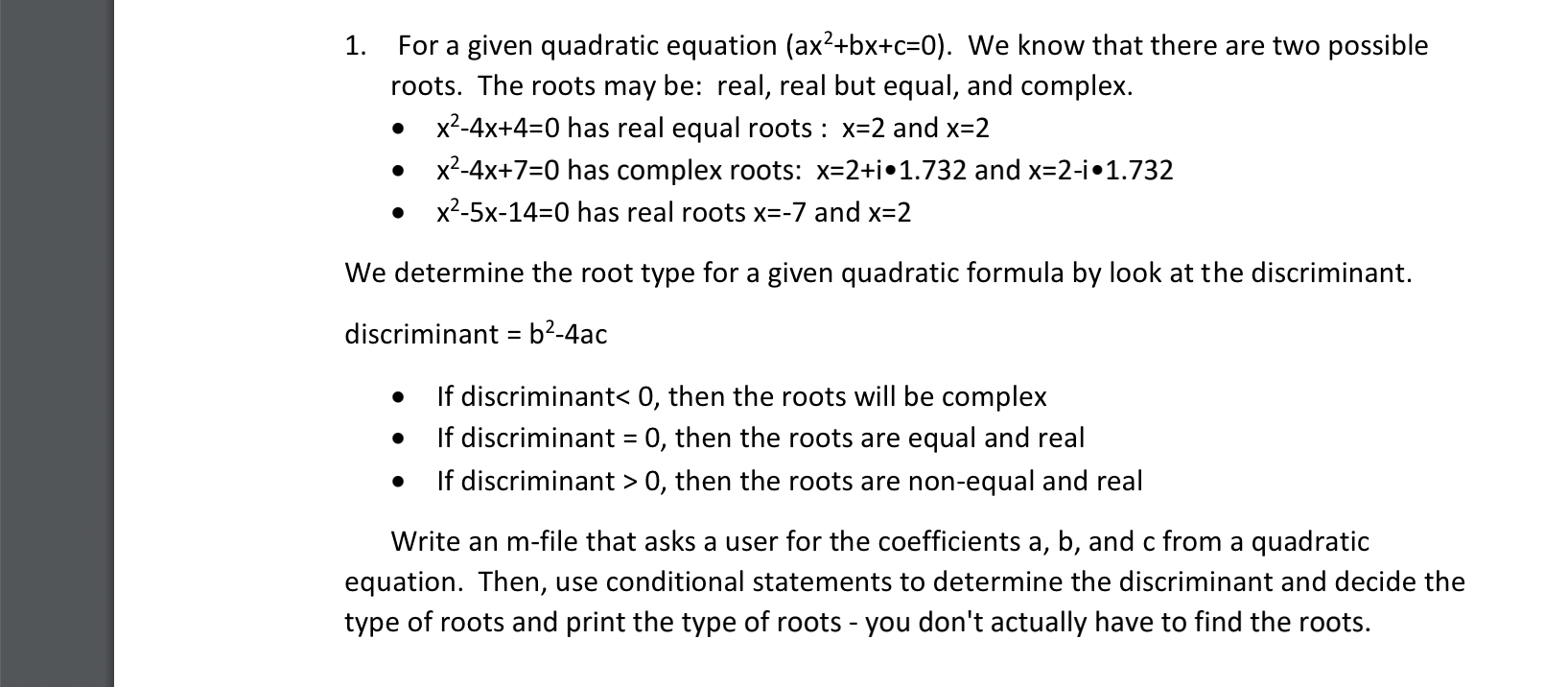Answered step by step
Verified Expert Solution
Question
1 Approved Answer
For a given quadratic equation ( a x 2 + b x + c = 0 ) . We know that there are two possible
For a given quadratic equation We know that there are two possible
roots. The roots may be: real, real but equal, and complex.
has real equal roots : and
has complex roots: and
has real roots and
We determine the root type for a given quadratic formula by look at the discriminant.
discriminant
If discriminant then the roots will be complex
If discriminant then the roots are equal and real
If discriminant then the roots are nonequal and real
Write an file that asks a user for the coefficients and c from a quadratic
equation. Then, use conditional statements to determine the discriminant and decide the
type of roots and print the type of roots you don't actually have to find the roots.

Step by Step Solution
There are 3 Steps involved in it
Step: 1

Get Instant Access to Expert-Tailored Solutions
See step-by-step solutions with expert insights and AI powered tools for academic success
Step: 2

Step: 3

Ace Your Homework with AI
Get the answers you need in no time with our AI-driven, step-by-step assistance
Get Started


